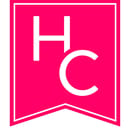The short answer: Yes, the potential is there.
The long answer: Well…
Over the last few months there’s been a whole lot of talk about sexual assault in the media surrounding the entertainment industry. It seems like everyday there’s a new name attached to a vile story.
It’s hard to hear because it just highlights how broken, unbalanced and unfair our society is towards women and folks within the LGBTQ+ community.
But, no matter how hard these allegations are to digest, it’s extremely important that these stories are told, and even more important that the world listens, and this is where Hollywood comes into play. Because of the hugely influential platform that they stand on, movie stars are well-positioned to speak out about the topics of gender inequality, harassment, and abuse. Perhaps they even have the unique responsibility to do so because of that reach.
During the annual awards season in the entertainment industry, these platforms are amplified even more so. The award-winning stars have the special opportunity to use their acceptance speeches to potentially call out the indiscretions that have been swept under the rug for far too long, and the power imbalances that favour men in Hollywood and in everyday life.
If you watched the Golden Globe Awards (https://www.ctv.ca/goldenglobes), then you might have noticed that there was something revolutionary in the air. The stars in attendance were encouraged to wear black in support of the Time’s Up movement—an initiative to declare that “the time is up” for male domination in Hollywood and beyond, that harassment is no longer tolerable, and that consequences must be faced.
In theory, wearing black to a black-tie event doesn’t seem so revolutionary. However, the publicity surrounding the suggested black dress code led to numerous inspiring moments (http://www.vogue.co.uk/gallery/girl-power-moments-golden-globes-2018) during the evening that turned the “blackout” into a symbol for solidarity and change. It also gave actresses the perfect opportunity to discuss the Time’s Up movement when asked who they’re “wearing” by commentators on the red carpet, a tradition which has come to be regarded as controversial and sexist in pre-show interviews.
The Time’s Up conversation at the 75th Golden Globe Awards wasn’t just singling out sexual harassment and gender inequality in Hollywood. Many of the films and TV shows honoured at the Awards told the stories of female characters from fiction and non-fiction, whose experiences on screen rang true with many women in real life.
One of the more memorable moments of the evening was Oprah’s heart-wrenching and warming speech as she accepted the Cecil B. DeMille award. Each year, the Hollywood Foreign Press presents this award to a recipient who has made outstanding contributions to the world of entertainment. Since the inaugural presentation to director Cecil B. DeMille in 1952, Oprah is the first Black woman to receive this honour for her career as an actress, talk show host, producer and philanthropist.
In keeping with the tone of her career, Oprah chose to use her acceptance speech as an opportunity to address every woman around the world who has ever endured abuse. It was a call to action for women to continue to speak up and tell their stories, all the while imploring men to listen, so that no person would ever again have to repeat the words “me too.” This was in acknowledgment of the recent #metoo hashtag that took social media by storm, as hundreds of thousands of people around the world stood in solidarity with each other to raise awareness of just how prevalent sexual harassment and abuse are in the lives of all women.
So yes, Hollywood certainly has the power to make a whole lot of noise, as evidenced by the recent Golden Globes. So far, this year’s entertainment awards season has set an example for how we can come together to turn these stories into conversations, rather than having them remain as monologues –or worse, secrets. However, if the rest of the world is to follow suit, then it’s going to take a whole lot of action to actually make a difference. It’s going to take sharing, supporting, and listening; it will require coming forward, holding accountable, and believing. As Oprah says, “speaking [our] truth is the most powerful tool we all have.”


